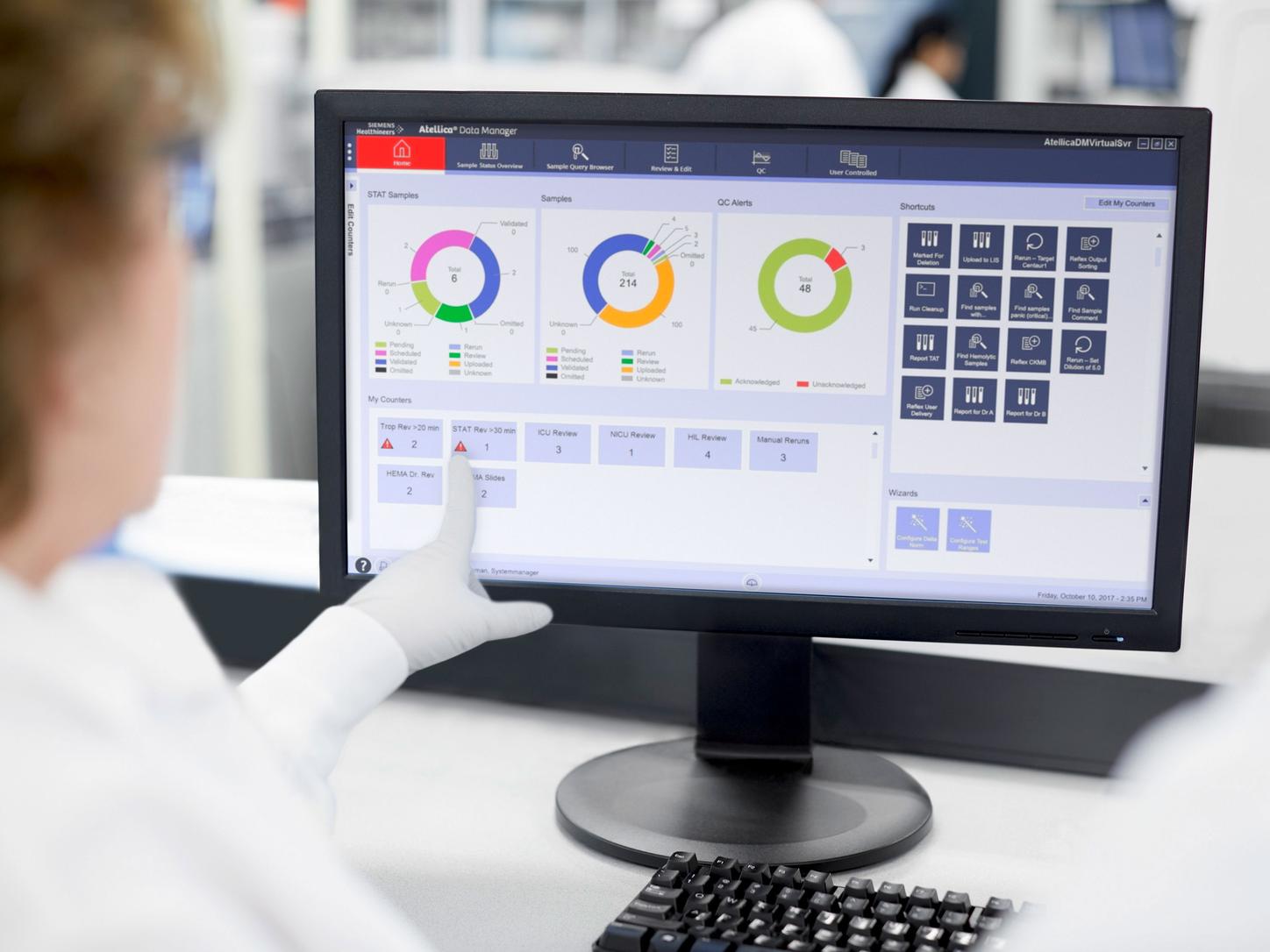Watch this free on-demand webinar today!
See how the lab at Swedish Hospital in Chicago has used Atellica® Data Manager to streamline hematology result management, implement robust autovalidation capabilities, and integrate Quality Control (QC) processes to optimize the service they provide and reduce the workload burden on their staff.
About this webinar

Overview
From laboratory information systems (LIS) to middleware, IT has clearly established itself as the backbone of the clinical laboratory. While the utility of IT is undeniable, so is its complexity, often requiring considerable expertise to properly align informatic solutions with the goals of laboratorians. This challenge is even more evident in hematology, with specialized needs that set it apart from other core lab testing. However, modern data management software is making it easier to increase standardization throughout the lab, in turn elevating quality and efficiency benchmarks in hematology to match high-volume testing counterparts such as chemistry and immunoassay. See how the lab at Swedish Hospital in Chicago has used Atellica® Data Manager to streamline hematology result management, implement robust autovalidation capabilities, and integrate Quality Control (QC) processes to optimize the service they provide and reduce the workload burden on their staff.

Susan Dawson, MBA, MT (ASCP)
Susan Dawson, MBA, MT (ASCP)
Laboratory Administrative Director - Swedish Hospital (Chicago, Illinois)
Susan Dawson is currently the Laboratory Administrative Director at Swedish Hospital in Chicago, Illinois and previously held the position of Clinical Laboratory Manager. Dawson is also an ASCP-certified medical technologist. She has presented on laboratory efficiency, automation, and autovalidation in the U.S., Europe, and China. Dawson has also co-authored abstracts and papers on laboratory efficiency, middleware implementation, and laboratory automation systems. She has extensive history with data management solutions, and in 2003, implemented autovalidation for chemistry, hematology, and coagulation in her laboratory.
Key learning objectives
- Understand how laboratory information systems and middleware can differ in functionality and why both should share a place in a lab’s IT mix.
- See how to best configure a multidisciplinary middleware solution so that critical information (including hematology data) is brought to the forefront and matches the needs of individual users.
- Learn how reference ranges, delta checking, QC, and instrument flagging can be combined to form powerful rule sets for autovalidation of hematology results.
- Recognize the impact an advanced IT approach to hematology has on turnaround times, reflexive testing and review rates, and staff utilization.
Certificate of attendance
All webinar participants can request a certificate of attendance, including a learning outcomes summary, for continuing education purposes.
Attendees are entitled to P.A.C.E. credits from the ASCLS and/or ACCENT credits from the AACC.
Who Should Attend?
- Clinicians
- Laboratorians
- Specialists
- Healthcare professionals
- Government decision-makers